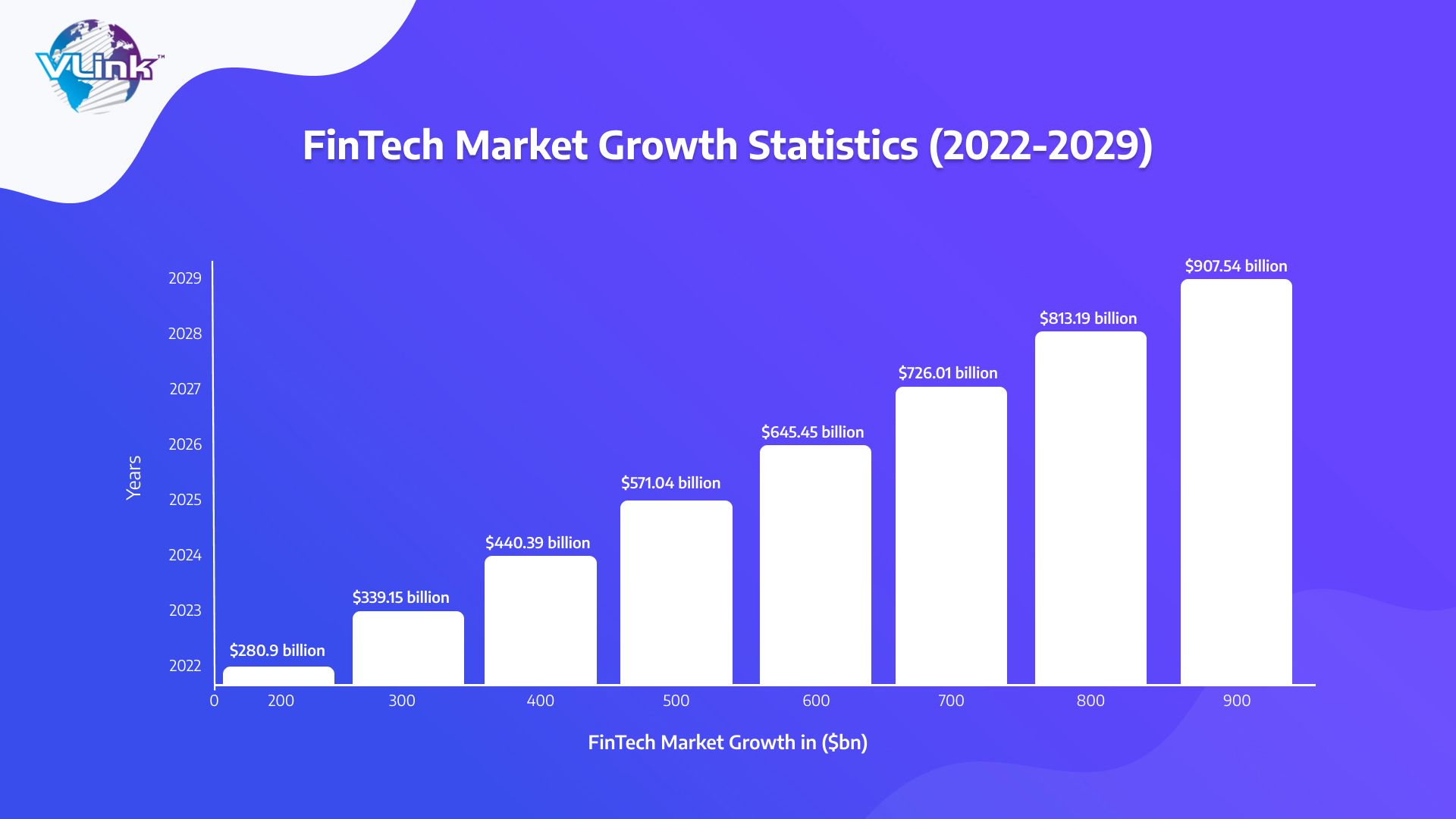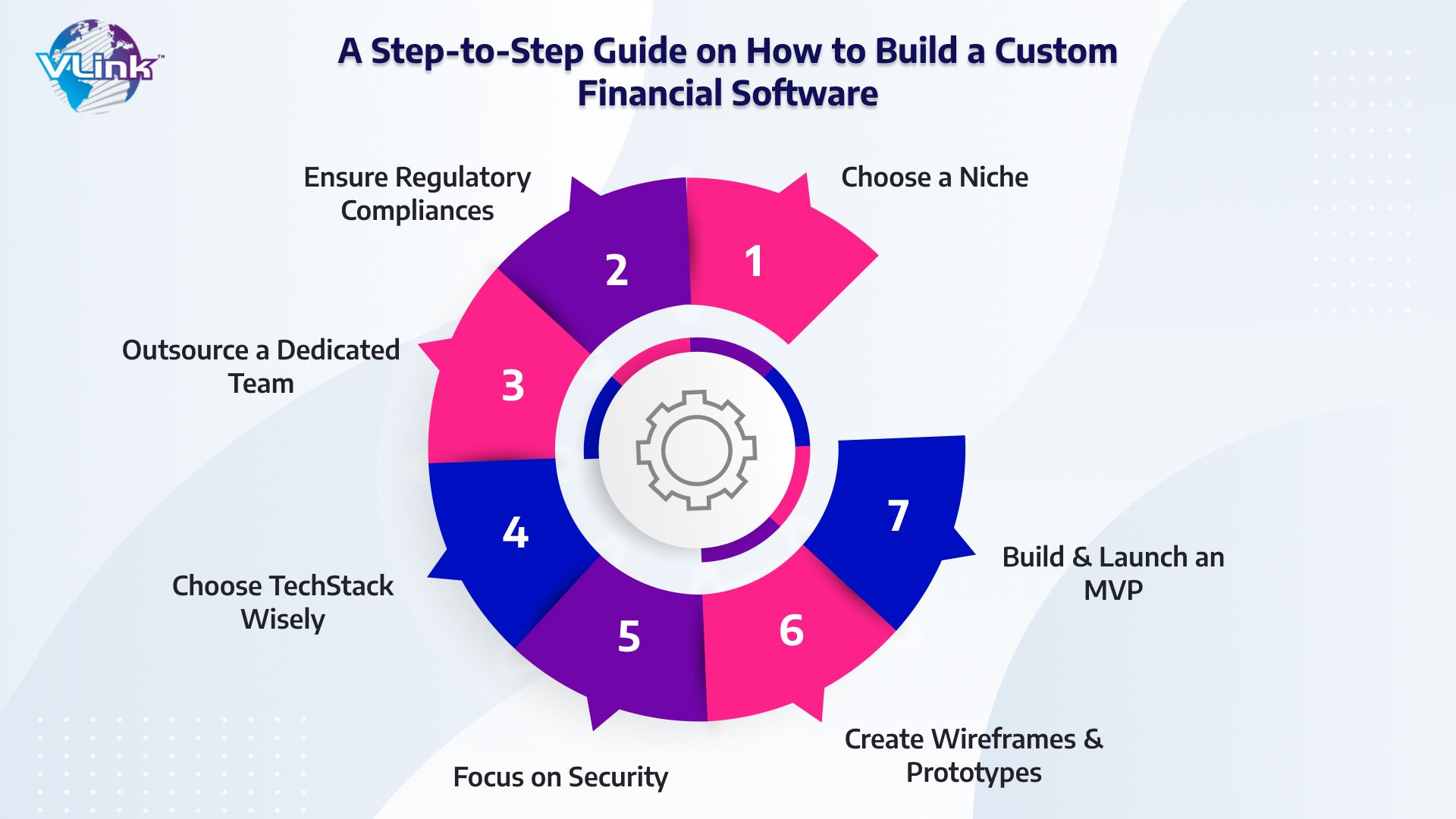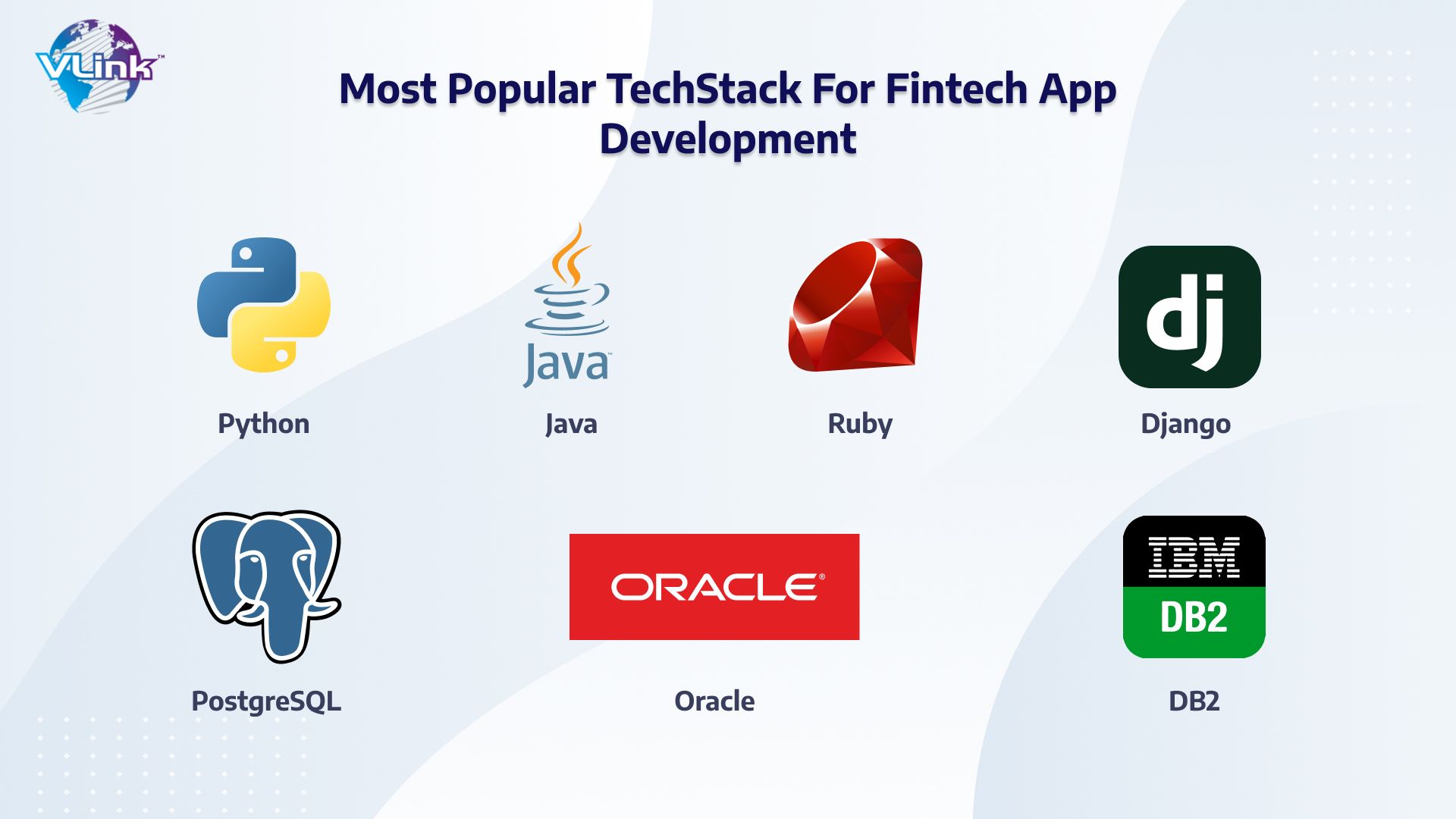If you want to customize your fintech app, ensure it’s secure, user-friendly and fast. You must consider legal policies, techstacks and steps to build a great solution. Building a personalized, unique finance app is not as easy as it sounds. So, how to build a custom financial app for your business?
In this blog, you will learn steps to create a secure, effective, fast mobile app for your finance business.
Let’s first start with some statistics about the finance app market.
Incredible Finance App Market Statistics (2022-2025)

- The global FinTech market value is estimated to reach approx. $324 bn by 2026.
- As of 2023, the fintech industry is worth $179 billion.
- There are approximately 30,000 fintech startups.
- The Digital Assets segment is projected to show a revenue growth of 33.6% in 2024.
- More than 5.48bn users will reach the digital payments segment by 2027.
- The total transaction value of the digital investment segment will reach $112.90bn in 2023.
- The blockchain market size in the BFSI domain is expected to grow $4.02 bn from 2021 to 2026.
A Step-to-Step Guide on How to Build a Custom Financial Software

Here is a step-by-step guide on how to develop a custom finance app:
#1 - Determine a Niche
The first step in customized financial software development is analyzing your app’s purpose, target audiences and competitors.
What’s your plan to deliver what your clients seek? Who are your competitors? How will you make your fintech software stand out?
Answering all these questions at the initial stage of your development process can ensure the final solution’s success. You should thoroughly research the market and decide what you’ll offer.

#2 - Ensure Regulatory Compliance
After selecting your market niche, it’s time to think about regulatory compliance. Missing this phase can open risk up to legal liabilities and penalties for you. Even a lack of compliance with regulations might make potential customers feel unsafe and turn to your competitors instead.
It’s essential to ensure that your finance software must follow different legal laws based on the location.
You must comply with the ePrivacy regulation, GDPR (General Data Protection Regulation), and CCPA (California Consumer Privacy Act).
Other acts are AML (Anti-Money Laundering), PCI DSS (Payment Card Industry Data Security Standard), and KYC (Know Your Customer).
An app that follows legal guidelines can make your business stand out in the fintech market.
#3 - Outsource a Dedicated Team
Now, it’s time to hire a dedicated team of developers.
Outsourcing a dedicated team is the best solution for customized finance software development.
Why?
- Reduce Costs in Salaries and Infrastructure
- Get Software to Market Faster
- Access to Experience & Expertise
- Spend Less Time
- Access to 24/7 Support
Outsourcing the best people is one of the essential stages of creating a professional & secure FinTech app. Ensure you hire seasoned programmers with extensive experience in successful finance software development services.
You’ll need UI/UX designers, web & mobile app developers, cybersecurity and DevOps engineers.
You can contact a dedicated outsourcing company to find the right developers for your finance software project.
If you are looking for the best IT outsourcing company in the United States, VLink is the right choice. We have a dedicated team of developers & designers with experience building secure & effective fintech apps.
Remember, your finance app’s success relies on whether you hire the right development team.

#4 - Choose TechStack Wisely
Before shifting to the hardcore development stage, select the technology stack required for the app's design, development and testing.
Choosing the wrong tech stack can negatively affect your software’s security, performance and scalability. It would help if you were critical about your selected technologies.
Here are some things you need to consider before implementing any technologies for your fintech software:
- Security level - Is the tech stack supporting your security level?
- Features- What features are you looking for in your fintech app?
- Platform - What platform do you need to build products?
- Scalability – Are your app’s technologies scalable?
- Costs – What is the cost of tools and libraries?
You will select the right tech stack for your fintech app development project by considering these things.
Here are some of the most popular finance technologies you can utilize:

Python - it's useful in trade, risk management and investment
Java - It is ideal for scalable, cross-platform Finance Software
Ruby - It is ideal for developing e-wallets, intuitive fintech dashboards, asset management, and digital payment apps.
Django - It's ideal for stock trading apps.
Oracle & DB2 - They have an amazing backup, fault tolerance, and high performance
PostgreSQL is known for its great analytical capabilities and transparent data encryption.
AI & ML - These technologies provide higher ROI for several applications.
#5 - Focus on Security
Implementing security features in your finance software development is of immense importance. More than 100 fintech startups found that 98% are vulnerable to web & mobile app attacks.
A few security measures to ensure infrastructural privacy are:
- Integrate perimeter defense with proxy servers and firewalls.
- Update OS and app servers regularly via Microsoft Software Update Service.
- Manage third-party elements.
- Utilize a fault infrastructure to support the primary server and enable faster disaster recovery.
- AWS cloud can protect your finance software from Distributed Denial-of-Service (DDoS attacks)
Other security measures you need to consider
- Utilizing an SSL certificate for web apps
- Identifying security and privacy concerns
- Integrating a GDPR notice
- Using privacy control
- Enabling strong passwords
- 2FA/MFA
If there is any API integration, you must inform users about third-party security.
#6 - Create Wireframes & Prototypes
Once you have selected the technology stack and security features for your finance app, creating wireframes and converting them into prototypes & app screens should be your next step.
UI/UX designers use Adobe XD, Figma, and Webflow tools for wireframing & prototyping. However, you should select whatever tools you work with. Ensure you follow the project roadmap and stick to the plan to avoid getting into unpredicted situations.
#7 - Build & Launch an MVP
Creating an MVP (Minimum Viable Product) for your finance app will help you minimize risks & save resources.
Now, it’s time to test your software by launching your MVP. At this stage, you will have stable and well-performing solutions that don’t contain any bugs.
The development team will carry out the following five testing methodologies:
- Functionality
- Performance
- Security
- Platform and device
- Extended review
After completing this stage correctly, you will feel confident about your app’s quality.
Finally, you can launch your finance software and modify apps per customer demands.
As you can see, building a custom finance app comes with several considerations. You can develop an effective & secure fintech app by following the steps above. But it’s not as easy as it sounds. After all, the fintech market is growing and is filled with a lot of opportunities to grow in the segment. So, you shouldn’t miss out on it.
So, if you’ve got an idea for a mobile fintech application, don’t hesitate to contact VLink’s team.
Partner With VLink For Custom Finance App Development Project!
VLink is a custom software development company offering effective fintech app development services. We have financial institutions and industries create scalable and sustainable solutions with a state-of-the-art app development tech stack. Our services include creating digital wallets, online banking apps, crypto trading apps, investment apps and more.








 Shivisha Patel
Shivisha Patel

















